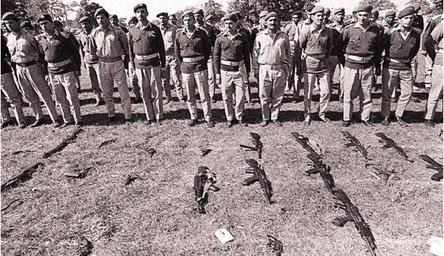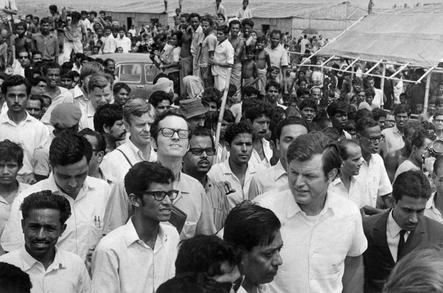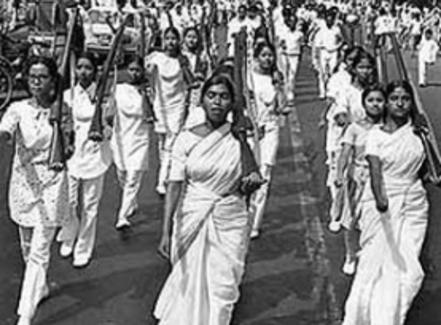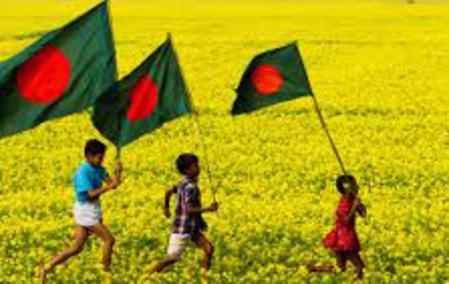The Naib Subedar came and asked me to follow him. I felt my rising heartbeat. As we came a little away from the crowd, he said in a low voice, “Saab, I know you. You are an artillery officer. You came to our unit for a pre-course on weapon training a few months ago. I was the instructor, a Havaldar then and had no beard.”
I was speechless and my mouth dried out.
“Saab,” he continued, “I am not going to ask what you were doing there today, nor am I going to tell it to anybody. I served in Jessore (East Pakistan); Bengalis are my brothers, my dear friends. If you are thinking of escaping, saab, there is little chance here. Deployment is almost complete along the border. You will bump into somebody and I don’t want you to be in trouble. My advice, saab, please go back to your unit.”
I listened to him quietly and he sounded sincere. “Naib saab,” I said in a low voice, “Yes, I tried to go across, but it didn’t work. I am going back to Sialkot now. And, thank you, saab.” I shook his hands and then embraced him in gratitude. He asked me to wait and called one of his men to arrange food for me. It was dark by then.
There were people in the military who did not just obey orders; they used discretion and judgment too. I thanked the Naib Subedar. A salute came from my heart.
Shortly afterwards, a Havaldar, sergeant, showed up in uniform, followed by Baghicha and a few other soldiers. They had no weapons. There was nothing to suggest a plan to take me into custody, and I came out of hiding. The Havaldar approached me and saluted in a perfect military style.
“Welcome to India, sir," he said. “I am Havaldar Laxman Singh. 5 Dogra Battalion."
It was one of my finest moments. Despite my weak and shabby physical state, I stood erect, expanded my chest by a few inches and took the salute.
"I am Captain Rashed Chowdhury of Bangladesh." I shook his hand. I felt slightly relieved, but concerns still remained.
After an hour of the last salvo, birds began chirping, roosters started crowing and a group of jackals synchronized their retiring howls of hukka-huas. The eastern sky over the hills showed silvery lines behind patches of clouds. Allahu Akbar…called the muezzin for the Morning Prayer at a nearby mosque. To me, it sounded like ‘all praise to Allah, the Greatest…..We are free at last. At peace.’
One notable outcome that followed my artillery pounding was the fading battle noise. Once again, I had turned the tide of the battle in our favor.
The shelling stopped. Major Amin rushed in from the frontline. By that time, I regained my consciousness. He squeezed my right hand.
"How are you feeling now?" asked an anxious Amin.
I opened my eyes and said in a low voice, "I guess fine, sir. Thank you." He sat by me and directed the medics. I started feeling better.
"Not bad for a day, sir," I said after a little pause with a dry smile. "An hour ago, crawling ants had a go on me. On that tree. Now the Pakis had a try. My time is not yet up. But, sir, I think I pinched the bastards hard."
EXCERPTS
"We are all Bengalis," U.S. Senator Ted Kennedy told refugees at a refugee camp in Dacca during his visit in 1972.
Girls of Mikti Bahini marching.
Soldiers in the Pakistani Army lay down their weapons.
All text on this site, copyright 2015, Rashed Chowdhury. All Rights Reserved. For reprint permissions, please contact the author's Editorial team: info@Editoro.biz




